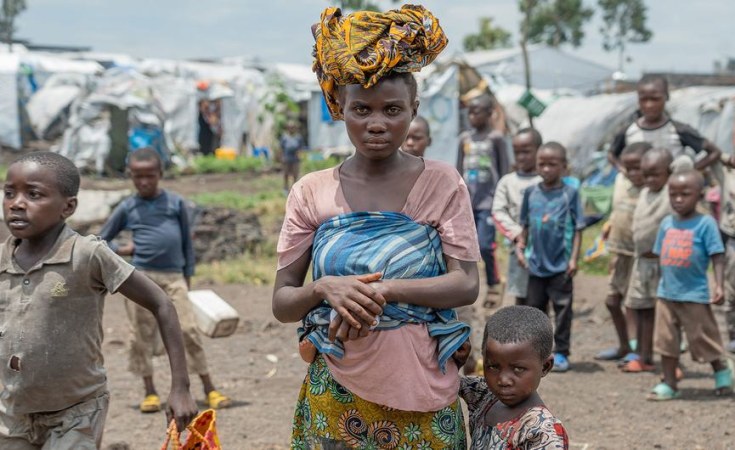Children in the Democratic Republic of the Congo (DRC) remain deeply impacted by conflict, facing an increase in grave violations, according to the latest report by the UN Secretary-General on children and armed conflict in the DRC .
Covering the period from April 2022 to March 2024, the report reveals an 8% rise in verified violations compared to the previous period, with recruitment and use, abduction, and killing and maiming of children being the most prevalent violations.
This increase is particularly worrying in the context of the withdrawal of MONUSCO in some areas of the country and raises the importance of ensuring sufficient resources for the continuation of child protection efforts.
"I am appalled by the sharp increase in the killing and maiming of children owing to military operations, clashes between parties, attacks on civilian communities and in the context of intercommunal violence, all of which take a heavy toll on children," said Virginia Gamba, the Special Representative of the UN Secretary-General for Children and Armed Conflict. "I appeal to all parties to refrain from targeting children, and civilians in general, and to take all necessary measures to minimize the effect of their activities on civilians, including by refraining from the use of explosive weapons in populated areas."
The DRC retains its status as one of the world's most dangerous places for children, with 8,208 grave violations verified against 6,196 children. Armed groups were responsible for 98% of these violations, with North and South Kivu provinces remaining the epicenters of violence.
Recruitment and use remained the most prevalent violation, with 4,006 children forcibly taken into the ranks of armed groups, often through abductions. Abduction cases totaled 2,028, a significant increase from the previous period, with children frequently subjected to further violations, including sexual violence or participation in combat.
The report also reveals a sharp increase in child casualties, with 1,298 children killed or maimed . The conflict in eastern provinces, notably North Kivu and Ituri, has significantly deteriorated. Massacres, displacement, and attacks on civilian infrastructure have intensified, particularly in areas controlled by armed groups like M23 and CODECO.
Cases of sexual violence against children remained high. With girls as young as 12 abducted and subjected to forced marriage, sexual slavery, and other forms of sexual abuse. "I urge the Government to prioritize the prevention and accountability of sexual violence, which remained the violation most attributed to Government security forces," the Special Representative added.
Attacks on schools and hospitals continued, with 193 incidents verified while the military use of schools has disrupted education for over 2.7 million children, further exposing them to the risk of recruitment and exploitation.
Engagement and Progress for Children
Despite the dire situation for children in the DRC, significant strides have been made toward improving their protection and securing their rights. The Government of the DRC has continued to demonstrate its commitment to child protection by implementing key aspects of its 2012 Action Plan aimed at preventing the recruitment and use of children and sexual violence against children by its armed and security forces. During the reporting period, joint screening mechanisms between the FARDC (Armed Forces of the DRC) and the United Nations remained operational, ensuring that underage recruits were identified and excluded from military ranks.
Additionally, the Government has taken steps to hold perpetrators accountable, prosecuting members of both armed groups and state forces involved in grave violations against children. Training sessions on conflict-related sexual violence and child protection were also conducted for FARDC personnel, further emphasizing the Government's commitment to addressing these violations.
One of the most notable areas of progress has been the ongoing release and reintegration of children associated with armed groups. Through advocacy efforts and dialogue facilitated by the United Nations, armed groups have released thousands of children, many of whom were subjected to harrowing experiences, including abduction, exploitation, and violence. Over 12,000 children formerly associated with armed groups and other vulnerable children in host communities received community-based reintegration, socioeconomic and school reintegration support as well as psychosocial and mental health support. These programs are crucial for helping children rebuild their lives and avoid re-recruitment.
"I welcome the commitment of the Government to the protection of children affected by armed conflict, including through implementing the 2012 action plan. I reiterate my call to all parties to put an end to and prevent these violations and adhere to their obligations under international human rights law and international humanitarian law." Virginia Gamba concluded.


